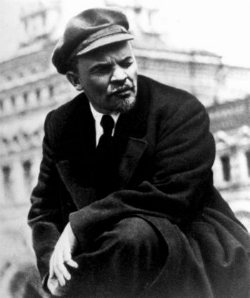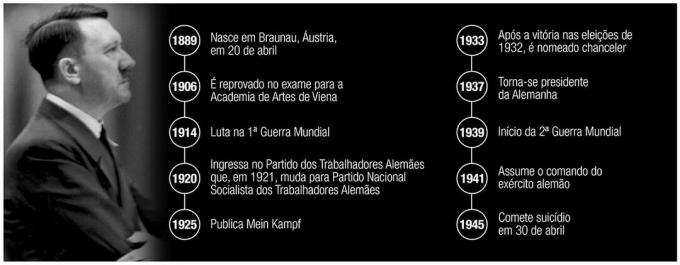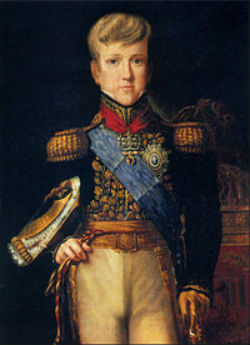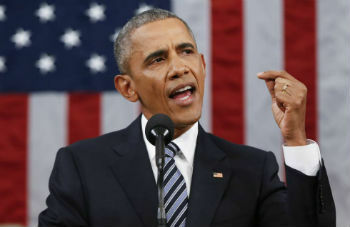Lenin he was a revolutionary communist, a Marxist theorist and the first head of state of the Union of Soviet Socialist Republics (USSR), of which he was one of the founders.
His thought, known as "Leninism”, influenced (and influences) the formation of communist parties, as well as the orientation of left-wing parties around the world.

Lenin was the ultimate leader of the Russian Revolution
Biography
Vladimir Ilyitch Ulianov was born in Simbirsk, a rural town in Russia, on April 22, 1870, into a relatively wealthy family.
Her father, Ilya Ulyanov Nikolayevich, was a top bureaucrat in the tsarist government and her mother, Maria Alexandrovna Ulyanova, was a teacher.
At the age of 19, his perception of the world is transformed when his older brother, Alexandre Ulianov, is accused and sentenced to death for high treason.
After this traumatic turnaround, Vladimir goes to Kazan (1887), where he attended the Faculty of Law. In the meantime, he gets to know the works of Karl Marx and Friedrich Engels, which will have a great influence on his academic training.
In 1890, Vladimir Ulianov goes to study at the University of St. Petersburg, where he becomes fluent in German, French and English, in addition to knowing Latin and Greek well.
In the year 1895, he founded the “Russian Social Democratic Party” and the “League of Struggle for the Emancipation of the Working Class”, inciting the St. Petersburg working class to revolt, which is why he is eventually arrested and sent to Siberia for three years.
Freed, Lenin will marry socialist militant Nadežda Konstantinovna Krupskaja (1898).
In 1900, Vladimir leaves Russia to live in Munich (1900-1902), London (1902-1903) and Geneva (1903-1905). In the meantime Ulyanov adopted several pseudonyms, among them Lenin, who was definitively chosen in 1902 to honor the River Lena in Siberia.
In 1905, when the first attempt at revolution in Russia begins, Lenin returns to his country. At this moment, divergences among the revolutionaries end up splitting them in two:
- O Bolshevik Party, of Lenin, who wanted to bring about the changes in Russia through armed revolution;
- O Menshevik Party, which incorporated members of the elite and the bourgeoisie and had a moderate position in relation to the Revolution.
Divided, the movement fails and Lenin returns to his exile (1907), living in Western Europe until the Russian Revolution of 1917.
In October 1917, the Bolshevik Party, led by Lenin, takes control of the revolution and power in Russia. So he overthrew the provisional government and elected Vladimir as chairman of the Council of Commissioners.
Furthermore, Lenin leads the First, the Second (1920) and the Third (1921) "World Congress of the Communist International".
In 1921, Lenin will propose the adoption of a new economic policy, mixing with socialism some elements of the capitalist market economy.
The following year (1922), he will accomplish his greatest feat: co-founding the Union of Soviet Socialist Republics (USSR).
Fatefully, that same year, he will contract a disease (probably syphilis) that would kill him on January 21, 1924, in the city of Gorki, Russia.
Lenin and the Russian Revolution
as main leader of Russian revolution of 1917, Lenin naturally assumed the leadership of the Communist Party. He was the first President of the Council of People's Commissars of the Soviet Union after the founding of the USSR.
In effect, Lenin will consolidate the socialist revolution inside and outside Russia, fueling the emergence of communist movements across the planet.
With his death in 1924, his goals of a world revolution were abandoned by Joseph Stalin (1879-1953), his successor.
Leon Trotsky (1879-1940), another leader of the revolution and Stalin's dissident, was expelled from the Soviet Union in 1929, ending the Soviet Leninist era.
Finally, Lenin's image was elevated to that of Karl Marx (1818-1883) in the socialist pantheon, as Stalinism broke with its program, especially on international issues.
Read too:
- Communism
- Socialism
- Stalinism in the USSR
- End of USSR
Main Ideas
Lenin's thought necessarily passes through the paths of Marxism in Karl Marx (1818-1883) and Friedrich Engels (1820-1895) and constitute a current called “Leninism” or “Marxism-Leninist”.
In turn, Leninism can be defined as a Marxist interpretation of agrarian Russia. With this, the determination of Marx's economic policies culminated in the insurrection of the soviets, under the leadership of the revolutionary vanguard.
Vladimir believed in the propagation of the revolutionary movement around the world, since he had an internationalist perspective. Internally, he encouraged the working classes, inviting them to participate in decisions before the workers' councils.
Finally, it is worth mentioning that, in action, he nationalized land, industries and businesses, as well as sought to implement some market mechanisms to adapt the new economy to capitalism.
Understand more about the Marxism and Trotskyism.
Main Works
- The Development of Capitalism in Russia (1899)
- What to do? (1902)
- One Step Forward, Two Steps Back (1904)
- Two Tactics of Social Democracy in the Democratic Revolution (1905)
- Materialism and Empiriocriticism (1909)
- Imperialism, Upper Stage of Capitalism (1916)
- The April Theses (April 1917)
- The State and the Revolution (1917)
Lenin's phrases
- “As long as capitalism and socialism exist, we cannot live in peace. In the end, one or the other will have to triumph – a requiem will be sung about the Soviet Republic or the capitalist world.”
- “Capitalists call the freedom of the rich to get rich and that of the workers to starve to death. Capitalists call freedom of the press the purchase of it by the rich, using wealth to fabricate and falsify public opinion.”
- “You become a communist when you enrich your mind with all the treasures created by mankind.”
- “Human reason has discovered many wonderful things about nature and will discover even more, thus increasing its power over it..”
- “It's true that freedom is precious - so precious it needs to be rationalized.”
- “Revolutions are the feasts of the oppressed and exploited.”



